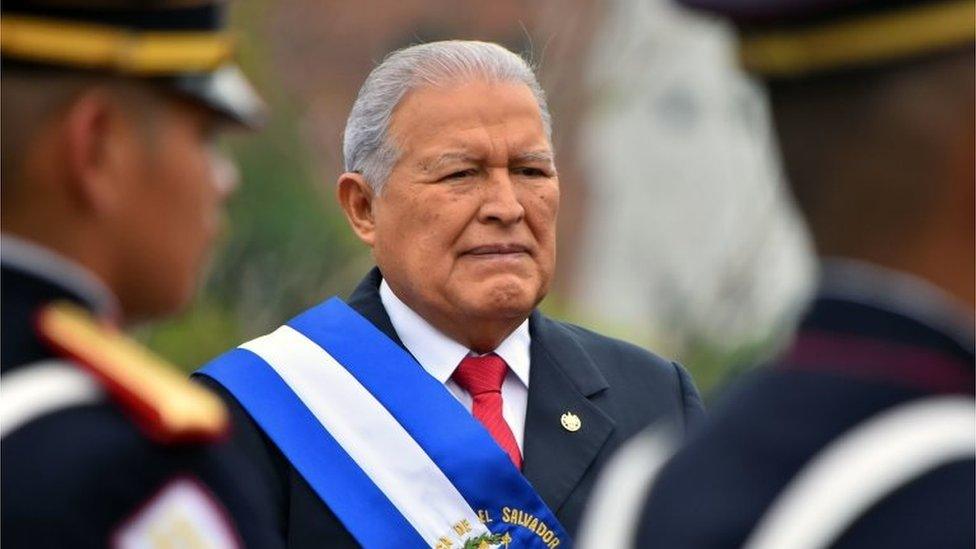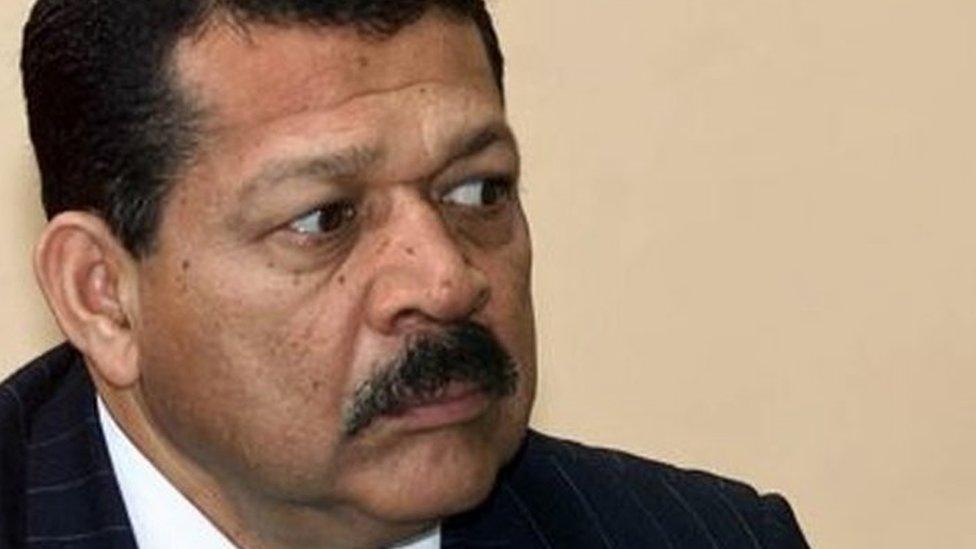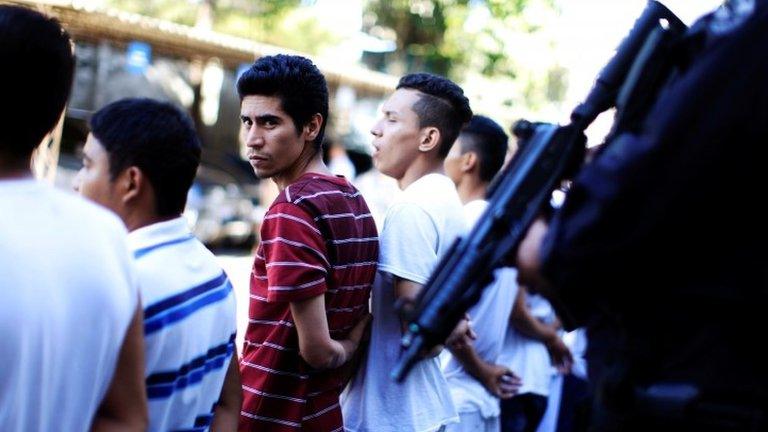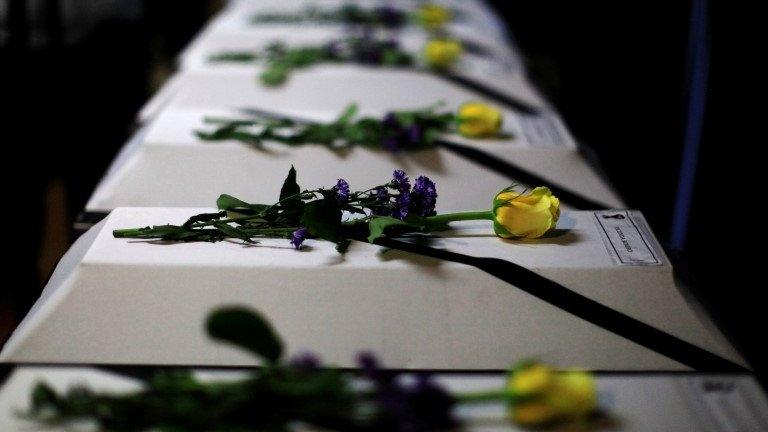El Salvador government rejects court ruling on kidnapped envoy
- Published

President Sánchez Cerén was in the left-wing rebel group behind Dunn's kidnapping
El Salvador's government has rejected a Supreme Court ruling ordering the president to testify about the disappearance of a South African ambassador to the country.
Archibald Gardner Dunn was seized by armed men outside the embassy on 28 November 1979.
Almost a year later, the left-wing rebel group Popular Liberation Forces said it had killed the diplomat.
Mr Sánchez Cerén was reportedly the group's second-in-command at the time.
In presidential elections held in March 2014, he became the first former rebel to lead El Salvador.
President Sánchez Cerén has not yet commented on the court ruling ordering him to give evidence over Dunn's disappearance.
However, his spokesman said in a statement: "The president did not belong to the leadership of the FPL that year, and was a labour leader for teachers. This ruling has the political aim of hurting the president's image."
No trace
The Supreme Court ruling followed a lawsuit brought by Dunn's relatives, who are trying to find out what happened to the ambassador.
His family say that despite the payment of a $2m (£1.5m) ransom and the intervention of Archbishop Óscar Romero, the rebels did not reveal the whereabouts of Dunn.
Instead, the rebel group circulated a statement on 8 October 1980 saying they had killed the diplomat for "noncompliance with our demands". His body has never been found.
The kidnapping of Dunn, who was 60 at the time, happened at a time of political violence and upheaval in the Central American country, following a military coup by reformist officers which ousted Gen Carlos Romero on 15 October 1979.
A 12-year-long civil war followed, pitting the left-wing rebel coalition Farabundo Marti National Liberation Front (FMNL) against the US-backed Salvadorean army and right-wing death squads.
About 75,000 people were killed and 8,000 went missing before a UN-sponsored peace accord was signed in 1991.
- Published29 November 2017

- Published13 January 2017

- Published15 July 2016
